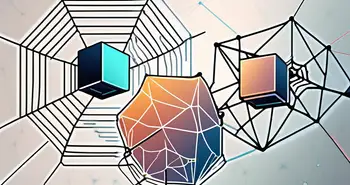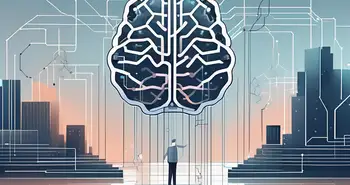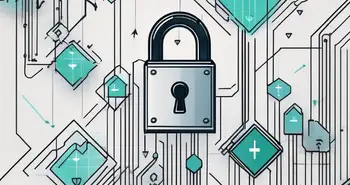Blockchain Validators Explained

As an expert in blockchain technology, I am here to shed light on the crucial role of a blockchain validator. In this article, we will explore the intricate details of blockchain technology, delve into the responsibilities of a validator, and discuss the challenges they face.
Understanding Blockchain Technology
The Basics of Blockchain
At its core, a blockchain is a decentralized ledger that stores digital information in a transparent and immutable manner. Each block contains a list of transactions, which are linked together using cryptographic hashes. This creates a chain of blocks, forming a distributed database that is maintained by various participants, known as validators.
Blockchain technology has gained significant attention due to its potential to revolutionize various industries, including finance, supply chain management, and healthcare. The decentralized nature of blockchain eliminates the need for intermediaries, reducing costs and increasing efficiency in transactions. Additionally, the immutability of blockchain records enhances security and trust among network participants.
How Blockchain Transactions Work
Blockchain transactions involve the transfer of digital assets or data between network participants. These transactions are verified and recorded on the blockchain through a consensus mechanism, such as proof-of-work or proof-of-stake. Once a transaction is confirmed, it becomes immutable and cannot be altered without consensus from the network.
Smart contracts, which are self-executing contracts with the terms of the agreement directly written into code, further enhance the capabilities of blockchain technology. These contracts automatically enforce and execute the terms of an agreement when predefined conditions are met, eliminating the need for intermediaries and streamlining processes.
Defining a Blockchain Validator
When delving into the world of blockchain technology, one cannot overlook the pivotal role played by validators. These individuals or entities are the unsung heroes of the blockchain network, working tirelessly behind the scenes to uphold the integrity and security of the system. While their tasks may seem complex and technical, their purpose is simple yet profound – to validate and confirm transactions through active participation in the consensus process.
Validators employ various methods to fulfill their duties, depending on the specific blockchain network and consensus algorithm in place. Some validators harness their computational power to solve intricate mathematical puzzles, while others opt to stake a certain amount of cryptocurrency as collateral to demonstrate their commitment to securing the network.
Key Responsibilities of a Validator
Validators play a critical role in maintaining the integrity and security of a blockchain network. Their primary responsibility is to validate and confirm transactions by participating in the consensus process. Validators use their computational power to solve complex mathematical puzzles or stake a certain amount of cryptocurrency to secure the network, depending on the consensus algorithm employed.
The Importance of Validators in Blockchain Networks
Validators act as the gatekeepers of a blockchain network, ensuring that only valid and legitimate transactions are added to the blockchain. Without validators, there would be no trust or consensus within the network. Their role is essential in preventing double-spending, protecting against attacks, and maintaining the overall stability and reliability of the blockchain ecosystem.
Furthermore, validators serve as the backbone of decentralization in blockchain networks. By distributing the responsibility of transaction validation among a diverse group of validators, the network becomes more resilient to potential attacks or manipulation. This decentralized approach not only enhances security but also fosters a greater level of trust among network participants, as no single entity holds undue influence over the system.
The Process of Blockchain Validation
Steps Involved in Blockchain Validation
The process of blockchain validation consists of several steps. First, the validator receives a transaction to validate. Next, they verify the authenticity of the transaction by checking the signature, ensuring that the sender has sufficient funds, and validating the transaction against predefined rules. Once the transaction is deemed valid, it is added to a block and appended to the blockchain.
After the transaction is added to a block, it undergoes a consensus mechanism process where other nodes in the network validate the block. This decentralized validation ensures the security and immutability of the blockchain. Once a consensus is reached among the nodes, the block is permanently added to the blockchain, creating a transparent and tamper-proof ledger of transactions.
The Role of Cryptography in Validation
Cryptography plays a crucial role in the validation process. It ensures the security and integrity of transactions by encrypting sensitive information and generating unique digital signatures. Validators utilize cryptographic algorithms to verify the authenticity of transactions and protect against potential fraud or tampering.
One of the key cryptographic techniques used in blockchain validation is hashing. Hash functions convert input data into a fixed-size string of characters, creating a unique fingerprint for each block. This fingerprint is essential for maintaining the integrity of the blockchain, as any alteration to the block's contents would result in a completely different hash value, easily detectable by the network.
Types of Blockchain Validators
Full Node Validators
A full node validator possesses a complete copy of the blockchain and actively participates in the validation process. These validators independently validate transactions and maintain a full copy of the blockchain, enabling them to verify all transactions within the network.
Light Node Validators
Light node validators, also known as partial validators, only store a fraction of the blockchain. They rely on full node validators to provide them with transaction information for validation. Light node validators offer scalability advantages and are commonly used in networks with limited resources or bandwidth.
Challenges Faced by Blockchain Validators
Dealing with Fraudulent Transactions
Validation requires diligence, as validators must carefully scrutinize transactions to detect any fraudulent activity or attempts to manipulate the network. Validators must remain vigilant and employ robust mechanisms to identify and reject fraudulent transactions, safeguarding the integrity of the blockchain network.
Overcoming Technical Difficulties
Blockchain validation involves complex computational tasks and can sometimes experience technical challenges. Validators need to ensure their hardware and software infrastructure is optimized and up to date to handle the computational demands. Additionally, they must have contingency plans in place to address technical issues promptly and ensure the smooth operation of the network.
As an expert blockchain validator, I have witnessed the transformative power of distributed ledger technology. Participating in consensus algorithms and ensuring the integrity of the blockchain network requires dedication and a meticulous approach to validation. While my journey as a validator has been filled with exciting challenges, the rewards of contributing to a secure and transparent blockchain ecosystem have been truly remarkable.
FAQ
What is the role of a blockchain validator?
A blockchain validator is responsible for validating and confirming transactions, ensuring the integrity and security of the blockchain network.
What are the main steps involved in blockchain validation?
The main steps in blockchain validation include receiving a transaction, verifying its authenticity, adding it to a block, and appending it to the blockchain.
What types of validators exist in blockchain networks?
There are two main types of validators: full node validators, which maintain a complete copy of the blockchain, and light node validators, which rely on full node validators for transaction information.
What challenges do blockchain validators face?
Blockchain validators face challenges such as detecting and dealing with fraudulent transactions and overcoming technical difficulties in the validation process.
In conclusion, the role of a blockchain validator is of utmost importance in ensuring the security, trust, and reliability of blockchain networks. Validators act as the guardians of the decentralized ecosystem, validating transactions, contributing to consensus, and maintaining the integrity of the blockchain. Their ability to navigate the complex world of blockchain technology and overcome the challenges they face is vital to the continued success and adoption of this groundbreaking innovation.
As you've learned about the vital role of blockchain validators in ensuring the security and integrity of blockchain networks, why not experience the power of blockchain technology firsthand? Morpher is at the forefront of this revolution, offering a unique trading platform that leverages blockchain for zero fees, infinite liquidity, and a truly innovative trading experience. Whether you're interested in stocks, cryptocurrencies, or even niche markets like NFTs, Morpher provides the tools you need to trade with confidence. Sign up today at Morpher.com and receive your free sign-up bonus to start your journey into the future of investing.

Disclaimer: All investments involve risk, and the past performance of a security, industry, sector, market, financial product, trading strategy, or individual’s trading does not guarantee future results or returns. Investors are fully responsible for any investment decisions they make. Such decisions should be based solely on an evaluation of their financial circumstances, investment objectives, risk tolerance, and liquidity needs. This post does not constitute investment advice.

Painless trading for everyone
Hundreds of markets all in one place - Apple, Bitcoin, Gold, Watches, NFTs, Sneakers and so much more.

Painless trading for everyone
Hundreds of markets all in one place - Apple, Bitcoin, Gold, Watches, NFTs, Sneakers and so much more.









